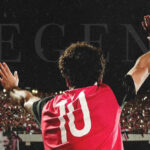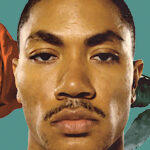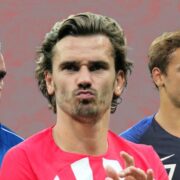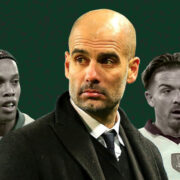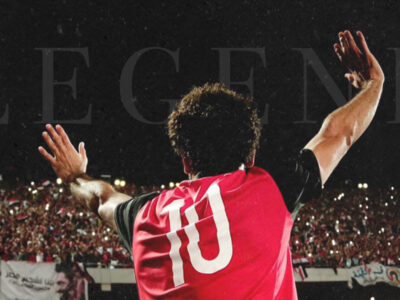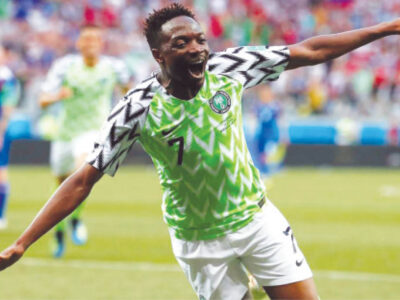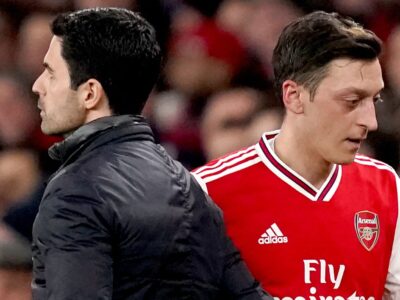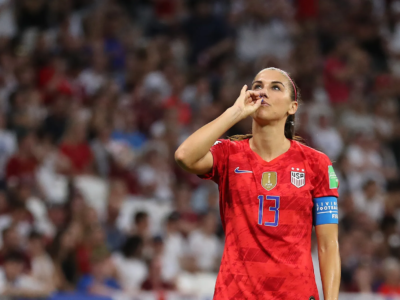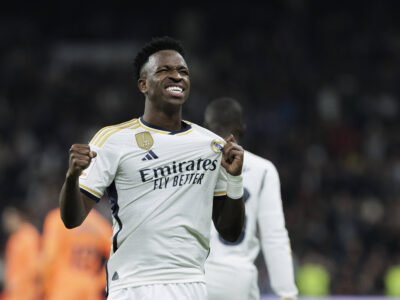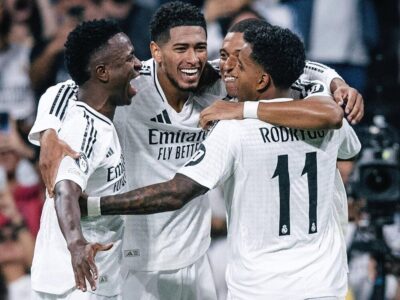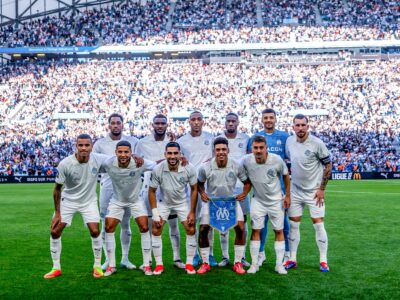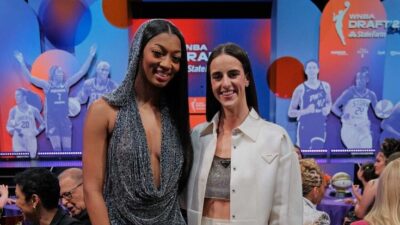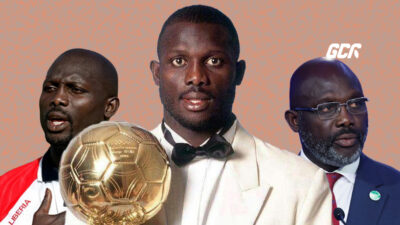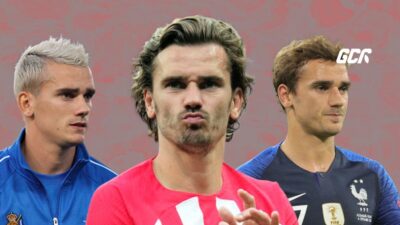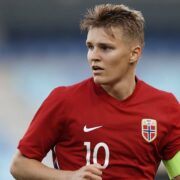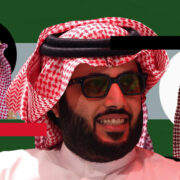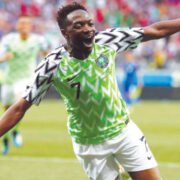Many African footballers have made the massive leap to success in Europe, but only a few come close to the formidable George Weah.
To this day, he remains the only African to win the highest individual honour of being the best football player in the world.
His remarkable peak helped change the perception of African footballers in European football, paving the way for other legends.
This is the remarkable story of George Weah, the pride of Liberia.
George Weah’s background
George Tawlon Manneh Oppong Ousman Weah was born on October 1, 1966, in the Clara Town district of Monrovia, Liberia. He grew up in a slum and faced significant economic hardships.
His father was a mechanic, while his mother was a merchant. Growing up in one of the poorest areas in the country subjected Weah to severe challenges, and his parent’s separation did not ease the struggle.
Unlike some of his peers, George Weah was able to attend middle school and high school but reportedly dropped out in his final year of studies.
Early career in Africa
Weah’s passion for football was evident from a young age, playing for local youth clubs.
Despite initial financial setbacks, his talent and determination propelled him forward, eventually leading to his discovery by international scouts.
Weah began his footballing journey with a club based in Clara Town, Young Survivors, in 1981 at the age of 15. On his debut, he immediately caught the eyes of top footballers.
Over his three years with the club, they gained two promotions, from the fourth division to the second division in Liberia.
In 1984, George Weah moved to the Liberian Premier League Club, Bong Range United, followed by a transfer to Mighty Barrolle, which is one of the most successful clubs in Liberia.
However, George Weah did not feature regularly despite his attacking outputs. To gain more playing time, he got a move to their rivals, Invincible Eleven, in 1986.
Weah had a successful spell with the club, playing a crucial role for the club emerging as the 1987 Liberian Premier League Champions. He became the division’s top scorer and best player of the season, a crowning reward for his individual brilliance throughout the season.
His first stint for a club side based abroad was with Cameroonian Premier League club Tonnerre Kalara Club (TKC) Yaounde in 1987.
The move was imminent after he impressed in a fixture against the Cameroonian-based club. He performed excellently on his debut for the club, scoring twice and capping off a good team display.
Moving to Europe
Weah’s journey in Europe began with the French top-flight club AS Monaco in 1988. This move came about thanks to Arsene Wenger, the manager of AS Monaco.
It is worth mentioning that this move was fostered by the Cameroon national team manager Claude Le Roy, who suggested him to Arsene Wenger after watching him play.
At Monaco, Weah quickly established himself as a prolific striker, helping the team win the French Cup in 1991. He also guided his team to the final of the 1991/92 European Cup Winners’ Cup, netting four goals in nine cup matches.
His success in France continued with Paris Saint-Germain (PSG), with whom he won the French Cup in 1993 and 1995, the Ligue 1 title in 1994, and the League Cup in 1995, during a highly successful and prolific period.
He also emerged as the top scorer of the 1994/95 UEFA Champions League, scoring seven goals en route to the semifinals.
Becoming a Milan Legend
In 1995, Weah moved to AC Milan, where he played alongside greats like Paolo Maldini, Franco Baresi, and Alessandro Costacurta.
In attack, he featured with Roberto Baggio, Oliver Bierhoff, and Dejan Savicevic in what was a dominant period for the Italian giants.
George Weah and Roberto Baggio. pic.twitter.com/vfU37qAB3i
— 90s Football (@90sfootball) July 3, 2022
Weah’s stint at Milan was, without a doubt, the most successful spell of his illustrious career, with his exceptional skill, athleticism, and goal-scoring prowess a lethal force to reckon with.
He won two Serie A titles (1996 and 1999), finishing as the top goal scorer on multiple occasions.
Paolo Maldini, one of the greatest defenders of all time and Weah’s teammate at AC Milan, once remarked, “George is a force of nature. On his day, he can single-handedly decide the outcome of a match.”
Milan barely enjoyed success at the continental level during his time, with their best run being a quarterfinal finish in the 1995/96 UEFA Cup.
Weah later had brief stints with Chelsea and Manchester City in the English Premier League, where he continued to showcase his skills and won the FA Cup with Chelsea in 2000.
Even though he was past his peak, Weah’s stint in England was fairly successful, particularly at Chelsea, where he quickly won over the fans.
He concluded his European career with Marseille in France and Al-Jazira in the UAE. Weah’s time in Europe solidified his status as one of the greatest African footballers of all time.
Making History
George Weah’s career is marked by several notable historical feats. In 1995, Weah became the first and only African player to win the prestigious Ballon d’Or, awarded to the best football player in the world.
That same year, he was named FIFA World Player of the Year, further solidifying his status as one of the best players globally. He also won the Onze d’Or, an award presented annually by the French magazine Onze Mondial, to the best football player in Europe.
He became the first and, currently, the only African player to win these awards, and the second player of African descent to achieve this after Eusebio.
Happy Birthday to the 1995 Ballon d'Or, George Weah#ballondor pic.twitter.com/Mt3sJn8Aw8
— Ballon d'Or (@ballondor) October 1, 2022
George Weah won the African Player of the Year award three times (1989, 1994, 1995). After the first win, he took the award back home as he wanted his nation Liberia to celebrate with him.
Only two players have won the African Player of the Year award more times than Weah did: Samuel Eto’o and Yaya Toure, each winning the award four times.
Weah won three league titles during his time in Europe, with the first being the Ligue 1 title with Paris Saint-Germain in the 1993/94 season. He won the other two European league titles with AC Milan, first in the 1995/96 season and then in the 1998/99 season.
He was the top scorer in the UEFA Champions League for the 1994/95 season. Weah’s time in Europe was groundbreaking, and his historic feats over the course of his career in Europe highlight his exceptional display on the pitch.
Representing Liberia
Weah represented Liberia with distinction during his playing career, becoming a national icon despite the team’s limited success on the international stage. He played over 70 games for the national team, scoring 18 goals.
His goal-scoring output for the national team might raise a few eyebrows, but representing one of the smaller nations in world football entailed limited scoring opportunities.
Weah did much more than be the star player for the national team. He also went on to coach the team and significantly financed his national side.
As Arsene Wenger, his former coach at AS Monaco, stated, “George Weah was an example of dedication and love for his country. He gave everything for Liberia, often funding the team’s expenses himself and playing with incredible passion and commitment.”
Known for his incredible skill and leadership, Weah often carried the hopes of his nation in various competitions, including the African Cup of Nations.
Despite his dedication, Weah was unable to help Liberia qualify for a FIFA World Cup, narrowly missing out by just one point in the 2002 qualifiers. However, he did lead Liberia to the African Cup of Nations twice, representing his country in the 1996 and 2002 tournaments.
Weah’s dedication to his country, on and off the field, showcased his deep sense of patriotism and solidified his status as a beloved figure in Liberian sports history.
Blazing the trail for African footballers
George Weah blazed the trail for African footballers, achieving unprecedented success on the global stage and inspiring countless players from the continent.
Before Weah arrived in European football, Roger Milla was the other renowned African player who brought the spotlight on the African continent.
During those years, African players bore the stereotypes of being less tactical or disciplined. They were seen to lack the “professionalism and tactical understanding” of the European game.
Even British players of African and Caribbean descent suffered discrimination. John Barnes, John Fashanu, Justin Fashanu, Des Walker, and Ian Wright are some notable victims of discrimination.
By winning the Ballon d’Or and FIFA World Player of the Year in 1995, George Weah demonstrated that African players could excel at the highest levels of the sport.
Weah’s achievements also coincided with Nigeria’s Atlanta 1996 Olympic team, including stars like Jay-Jay Okocha, Daniel Amokachi, and Nwankwo Kanu.
The success of these players in the late 90s and early 2000s, when they became household names and made significant impacts in European clubs and international tournaments, can be traced back to the trail blazed by George Weah.
Life outside football
Beyond the pitch, George Weah has led a life marked by significant achievements and contributions, particularly in politics and philanthropy.
His political career began with an unsuccessful presidential bid in 2005, but he persisted, reflecting his commitment to his country’s governance. Before becoming president, Weah served as a senator for Montserrado County, elected in 2014.
US-Africa Leaders Summit. 🇱🇷🇺🇸 pic.twitter.com/ygz3TMcUnJ
— George Weah (@GeorgeWeahOff) December 15, 2022
George Weah was elected as the 25th President of Liberia in December 2017 and took office on January 22, 2018. His election marked a significant milestone as he transitioned from a celebrated footballer to a national leader.
Weah champions humanitarian work, focusing on improving living conditions in Liberia. He established the George Weah Foundation to assist underprivileged children and communities in Liberia, providing scholarships, building schools, and supporting healthcare initiatives.
George Weah is married to Clar Weah, and they have three children. His son, Timothy Weah, has followed in his footsteps and is a professional footballer who plays for the United States Men’s National Team.
Lasting Legacy
Weah’s legacy in Africa and on the global stage is going to be eternal. Being the only African player to reach the pinnacle of individual success in football is a very remarkable achievement.
Years have passed, and his success has only been rivalled by Didier Drogba, Samuel Eto’o, and Mohammed Salah. Victor Osimhen, Riyad Mahrez, and a few members of Nigeria’s golden generation will bear the torch.
Despite George Weah’s outstanding impact on football, Liberian football never kicked one; no player from his country reached the level he had achieved.
This is a concerning phenomenon, as one would find it baffling that the country that produced one of the greatest African footballers of all time has yet to see another player emerge onto the global stage.
With his experience as a player and a coach, coupled with his position as the President of his country, one can look forward to positive changes in football in Liberia.
Who wrote this?
Bienuoma Agaga-Akpati is a software engineer, writer, eSports player, and sports enthusiast, presently working with a group of ambitious Africans to transform the writing industry. With good knowledge of various sports and eSports, coupled with his keen ability for research, he loves analyzing ideas and topics that fosters the growth of the sport and eSports scenes. In his spare time, he enjoys creating content and engaging in discussions across various platforms.

